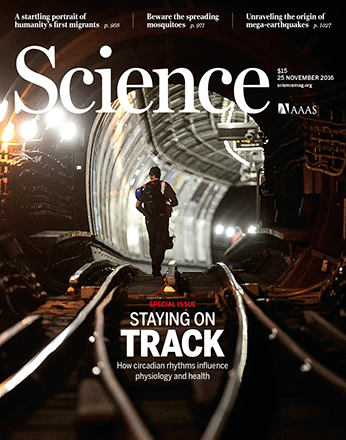More developments in senescent cell signalling published this month.
Differentiated cells in a culture dish can assume a new identity when manipulated to express four transcription factors. This “reprogramming” process has sparked interest because conceivably it could be harnessed as a therapeutic strategy for tissue regeneration. Mosteiro et al. used a mouse model to study the signals that promote cell reprogramming in vivo. They found that the factors that trigger reprogramming in vitro do the same in vivo; however, they also inflict cell damage. The damaged cells enter a state of senescence and begin secreting certain factors that promote reprogramming, including an inflammatory cytokine called interleukin-6. Thus, in the physiological setting, cell senescence may create a tissue context that favors reprogramming of neighboring cells.
